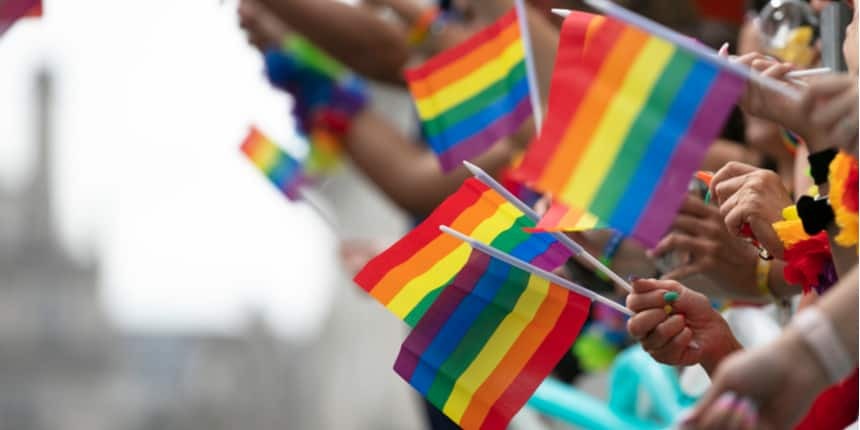NCERT drafts new module for transgender children, proposes gender-neutral uniform
R. Radhika | January 17, 2023 | 02:40 PM IST | 3 mins read
Unlike the first, the new NCERT module focuses only on transgender persons by birth, excludes caste, patriarchy as agents fostering discrimination
CBSE Class 10th Syllabus 2025-26
Students can access the subject-wise CBSE Class 10 syllabus for the 2025–26 academic session.
Check Now
NEW DELHI: Since it was last introduced and revoked in 2020, the National Council for Educational Research and Training (NCERT) has drafted a new module for inclusion of transgender children in schools.
CBSE Class 10th QP's: Science: Set 1 | Set 2 | Set 3 | English: Set 1 | Set 2 | Set 3 | AI | IT | Sanskrit
CBSE Class 10th Answer Key: Science | Maths | Basic-Maths | English | IT | AI | Hindi
CBSE Class 10th: Admit Card | Exam Calendar | Syllabus | Science Imp. Questions
CBSE Class 10 PYQ's: Hindi | English | Science | Math-Basic | Math- Standard
The module, Integrating Transgender Concerns in Schooling Process, aims to create an “all -inclusive environment” by sensitising the teachers, school administrators and other non-teaching staff, parents, community and the students.
The new draft, prepared by a 16 member committee led by Jyotsna Tiwari, head of gender studies department at NCERT identifies “reinforcement of gender binaries” as one of the “glaring concerns” that hinder access to education for transgender children.
Unlike the previous NCERT module that included diverse sexual expressions included in LGBTQIA+ (lesbian, gay, bisexual, transgender, queer, intersex, agender) community, the new draft specifically focuses on transgender persons by birth. The module also has excluded caste and patriarchy as the agents fostering discrimination against transgender people.
“Though there is a recognition of people with diverse sexualities and sexual orientations including LGBTQIA+communities, the present module is specifically focussing upon transgender persons by birth,” the draft states.
The module proposes discontinuing practices like gender-specific seating, stereotyping games and sports with a particular gender, pitching classroom interaction into gender binaries to create an inclusive environment. In the school curriculum, the draft encourages teachers to “identify the spaces and scope of integrating gender, especially transgender concerns in their pedagogy and textbook content.” The draft also proposes adapting the material content to protect transgender students from being unfairly excluded from participating in activities after school and during school hours.
Gender-neutral uniform
The earlier draft of the module titled “Inclusion of Transgender Children in School Education: Concerns and Roadmap” was dropped after the National Commission for Protection of Child Rights (NCPCR) objected to it claiming it exposed children to “unnecessary psychological trauma” and that idea of removing binaries will supposedly contradict the idea of creating an inclusive environment.
The commission’s chairperson Priyank Kanoongo had also criticised the old module for introducing gender-neutral toilets in schools, which he said, can increase the instance of sexual assault and sexual abuse. The current module states that a toilet may be assigned exclusively for transgender students or allow transgender children to access toilets assigned to children with special needs, if they feel comfortable. The module also proposes gender neutral uniforms Class 6 onwards to do away gender conformity.
“Some of the students, specially from Grade VI onward have preference for clothes, particularly school uniform. They do not feel comfortable in a particular dress. Schools can introduce gender neutral uniforms which are comfortable, climate appropriate, fit and do not conform to particular gender,” the module states.
Last year, gender neutral-uniforms were introduced in a few government schools in Kerala. However, the state government backed down in the wake of protest from various Muslim outfits in the state. Education minister Shivankutty also said that “the government has not taken a decision to impose any specific dress code upon children”.
Homophobia, transphobic violence
The module also stresses on identifying various forms of physical, emotional and sexual violence perpetrated against transgender children in school. Name calling, bullying, harassment within school premises perpetrated by school teaching or non teaching staff must be identified to ensure a safer environment.
“It might include experiences of rejection within the process of seeking identification of their gender identity or asking to be called by the name they selected for affirming their gender identity.
These are everyday yet profound events of experiencing violence by transgender persons. It needs to be noted that “homophobic and transphobic violence is also associated with poorer than average physical and mental health,” the module states.
The new module suggest implementation of Anti-bullying Committee and Grievance Committee on Child Sexual Abuse or CSA, access to counselling, regular workshop and ensuring safe living environment or provide residence, if needed.
To facilitate a safer environment and inclusivity, the module also encourages hiring of transgender teachers and other school personnel without gender-based discrimination.
Follow us for the latest education news on colleges and universities, admission, courses, exams, research, education policies, study abroad and more..
To get in touch, write to us at news@careers360.com.